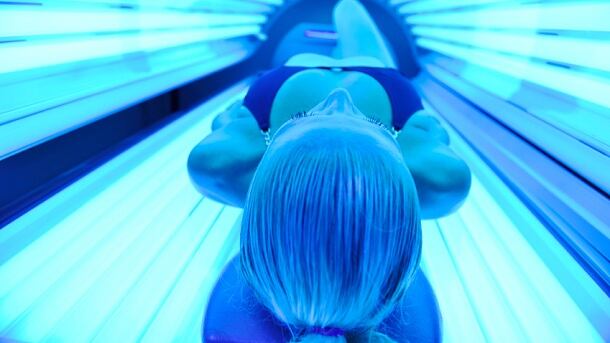A study of Irish athletes in 2010/11 showed 55% of subjects had vitamin D insufficiency or deficiency – a common problem in Ireland due to its northerly latitude and climate. In the wake of the study, the Irish Institute of Sport instituted a new vitamin D monitoring and supplementation regime, providing supplements to athletes with low levels of the vitamin manufactured by the body when exposed to sunlight.
Routine screening in colder months
“Elite Irish athletes are routinely screened during the late autumn/early winter (October onward) when ultraviolet B radiation is no longer able to trigger dermal vitamin D synthesis and risk of deficiency increases concomitantly. This marks a change in strategy from pre-2010/2011 when vitamin D screening and supplementation was uncommon,” wrote the authors of the follow-up study, published in the journal Nutrients.
“Athletes that exhibit a total 25(OH)D [vitamin D] concentration below 125 nmol/L are currently assigned to a supplementation protocol based upon their initial total 25(OH)D concentration,” they added, noting that vitamin D3 was used in favour of vitamin D2, thanks to research linking D3 to higher bioavailability.
According to the new study, only 14% of athletes tested had vitamin D insufficiency or deficiency – although the researchers noted their study tested athletes from different disciplines than the earlier research. Boxers were included in both studies, though, and their insufficiency/deficiency rate fell from 29% to 10%.
The researchers noted the link between supplement use and vitamin D sufficiency: “Vitamin D supplement use was confirmed as a positive predictor of vitamin D status in the current study. This finding reinforces the important role that vitamin D supplementation has to play in the optimisation of elite athletes vitamin D status.”
The sunshine vitamin
Vitamin D refers to two biologically inactive precursors – D3, also known as cholecalciferol, and D2, also known as ergocalciferol. Both D3 and D2 precursors are transformed in the liver and kidneys into 25- hydroxyvitamin D (25(OH)D), the non-active 'storage' form, and 1,25-dihydroxyvitamin D (1,25(OH)2D).
While our bodies do manufacture vitamin D on exposure to sunshine, the levels in some countries closer to the Earth’s poles are so weak during the winter months that our body makes very little vitamin D. Food supplements and fortified foods are seen by many as the best way to boost intakes of vitamin D.
Vitamin D deficiency in adults is reported to precipitate or exacerbate osteopenia, osteoporosis, muscle weakness, fractures, common cancers, autoimmune diseases, infectious diseases and cardiovascular diseases. There is also some evidence that the vitamin may reduce the incidence of several types of cancer and type-1 and -2 diabetes.
No benefit from sunbeds or travel
In contrast, they suggested there was little evidence to link sunbed use or foreign travel to better vitamin D levels. Only 16% of athletes tested reported sunbed use, and while many did travel to sunnier locales, this proved not to have an effect either.
“Although 47% of athletes reported equatorial travel, this was not deemed a significant predictor of vitamin D status. Although this may seem surprising owing to the unequivocal role of UVB exposure in vitamin D synthesis, one should not assume that equatorial travel for training/competition invariably results in an enhanced vitamin D status,” wrote the authors.

“It is plausible to suggest that effective application of high sun protection factor cream and indoor training, to avoid excessive heat exposure during peak sunlight hours, may limit vitamin D synthesis despite an equatorial location,” they added.
“In summary, vitamin D sufficiency is now commonplace in elite Irish athletes. This finding demonstrates the efficacy of targeted supplementation in elite sport and suggests that blanket-supplementation of elite Irish athletes may therefore not be appropriate,” the study’s authors concluded.
The study tested 64 male and female elite Irish athletes across rugby, cricket and boxing, collecting 92 blood samples in total between November 2013 and April 2015.
Along with blood samples, researchers questioned athletes on their travel, sunbed use and supplement regime, with 25% of athletes across all sports reporting vitamin D supplement use in the six months prior to being surveyed.
Source: Nutrients
Published online ahead of print, doi: 10.3390/nu8080485
“Vitamin D Status and Supplementation Practices in Elite Irish Athletes: An Update from 2010/2011”
Authors: Todd, J. et al.
